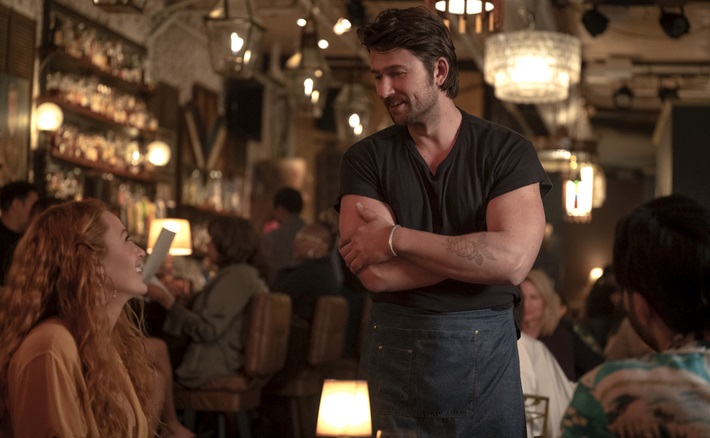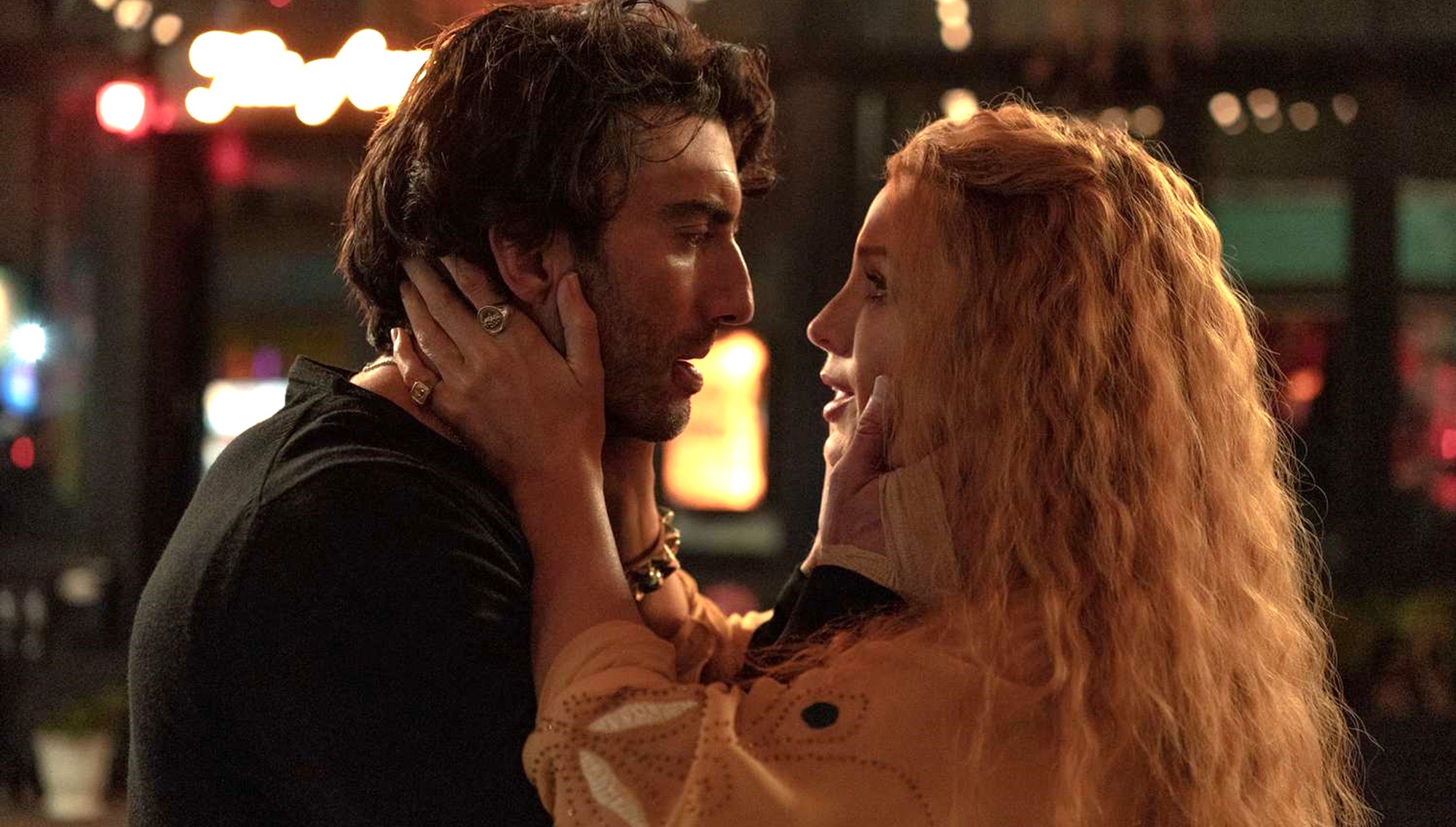What to Watch Verdict
Even Colleen Hoover romance diehards might be disappointed by this often-silly #BookTok telling of an otherwise harrowing story.
Pros
- +
The welcome return of Blake Lively, in her first lead role in years
- +
A worthwhile cautionary tale not often seen in the romance space
- +
Jenny Slate at her Jenny Slate-ist
Cons
- -
Tepid chemistry between the leads
- -
Clunky dialogue marring the delicate subject matter
- -
Tonal whiplash between breezy romance and brutal abuse
"Don't make me regret this," Lily Bloom, the improbably named Boston florist played by Blake Lively, warns Ryle Kincaid (the improbably named neurosurgeon played by Justin Baldoni, who also directs) in an early scene of It End with Us, the first big-screen adaptation of one of Colleen Hoover’s fan-favorite #BookTok novels.
At this point in the romantic melodrama, the only real danger is to Lily's heart: that this charming, sharp-jawed bachelor will sweep her off her feet and ultimately play her for the fool. It soon becomes clear, however, that beneath their rooftop flirtations and odd maraschino-cherry banter, there beats something far more menacing. But it's this very tonal clash that makes this a regretful rendition of Hoover's 2016 best-selling book.
The passionate present of Lily's budding courtship from Ryle — dotted with dinners with Lily's widowed mother Jenny (Amy Morton), who is utterly besotted with the dashing doc, and double dates with Ryle’s sister–turned–Lily's flower-shop employee Allysa (Jenny Slate) and her husband Marshall (Hasan Minhaj) — is intercut with memories from her past, namely the tender romance with her high-school sweetheart, Atlas Corrigan.
Portrayed by Isabela Ferrer (who single-handedly sells those flashback sequences with her uncanny mimicry of Lively's voice and mannerisms) and Alex Neustaedter, the young Lily and sensitive Atlas bond over their shared, scarred history of domestic abuse, a dark generational trauma that is brought into the light when Lily and Ryle run into her now-grown former paramour (played by 1923's Brandon Sklenar) at the buzzy Beantown restaurant he owns.

It's the reappearance of Atlas that not only sets off Ryle's jealous, controlling nature and, later, his propensity for physical violence, but also sorely points out the sorry lack of chemistry between the movie's two leads. With meager screen time, Sklenar manages to kindle a more believable spark with Lively than Baldoni does in two-plus hours. Goofy dialogue — much of it lifted verbatim from Hoover’s page by screenwriter Christy Hall — doesn't help sell things between the pained main pair. ("Love isn't for me. Lust is nice, though," Ryle coos in an early red-flag moment.)
A characteristically radiant Lively tries her damndest though, beaming through those cringe-worthy quotes and working hard to make Lily's truly bizarro wardrobe choices seem like something a real-live woman would wear in Back Bay or anywhere, really. Though she's less believable as a flowy, folksy Manic Pixie Dream Girl type who breaks onto building rooftops to sit just a little too close to the edge, Lively roots the character with vulnerability and awareness, particularly in Lily's third-act resolve to break the cycle of abuse she was raised in and sow a healthier future for herself and her kin.
The problem is that, despite the soil artfully dusted on her gardening apron, we don't get to plumb the nitty-gritty of our heroine, though Bardoni and Co. have wisely moved the story's sympathetic focus from Ryle to Lily, a common criticism of Hoover's novel. Movie Lily feels far less defined by her childhood trauma than the one on page; the characters have also been aged up from Hoover's novel, which adds to the nagging feeling that we're missing vital Wiki sections of who this woman is. (It's especially curious that a gal as magnetic as Lily Bloom seemingly has no girlfriend support system of her own, given how immediately she welcomes Allysa into her orbit as her BFF.)
In fact, none of the main characters are really allowed to bloom (pardon the pun), hindered by the surface-level soapiness of both Hoover's original tale and Hall's adaptation, as well as the overly slick, music-montaged direction of Baldoni, who dizzyingly sharp-turns the film from Fifty Shades-esque seduction scenes to Lifetime-worthy love triangles to weepy, wounded melodrama. (The director is better onscreen as the charismatic and calculating Kincaid, a tick-tick of threat under all of that love-bombing.)
It Ends with Us has worthy things to say: about the heaviness of abuse, how it informs not only individuals but generations and the determination it takes to break free from those toxic patterns. But what should be a portrait of strength and empowerment feels flimsy in this frame.
It Ends with Us releases exclusively in movie theaters in North America on August 9.
Christina Izzo is the Deputy Editor of My Imperfect Life. More generally, she is a writer-editor covering food and drink, travel, lifestyle and culture in New York City. She was previously the Features Editor at Rachael Ray In Season and Reveal, as well as the Food & Drink Editor and chief restaurant critic at Time Out New York.
When she’s not doing all that, she can probably be found eating cheese somewhere.












